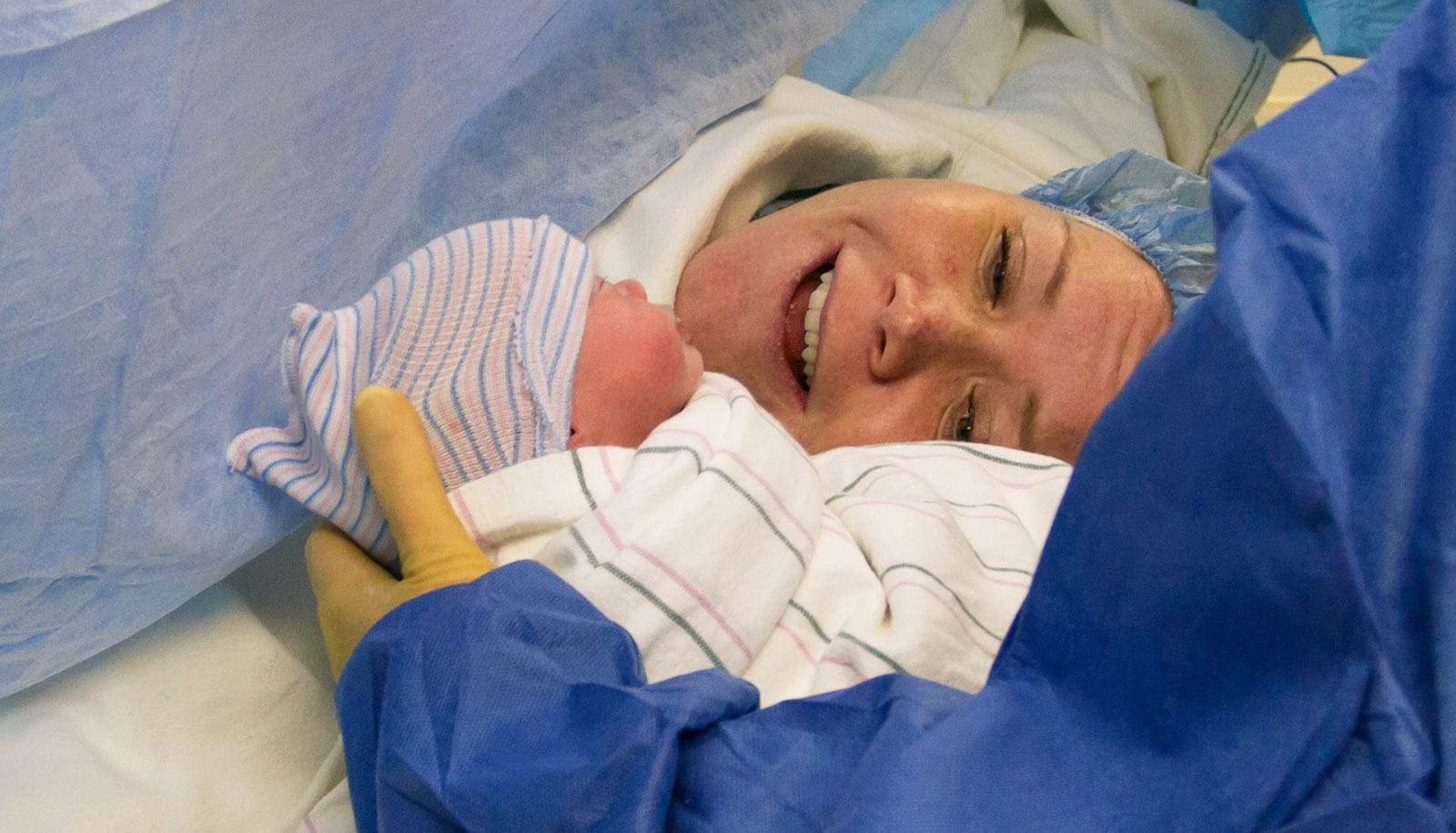New findings link birth by caesarean section, the baby’s microbiome, and asthma risk.
The study, which appears in the journal Science Translational Medicine, has implications for understanding the role of c-section delivery in potentially skewing a child’s microbiota—the trillions of beneficial microorganisms that live in and on our bodies—and how this can influence health. It could lead to new prevention strategies, including targeted efforts to fix disturbances in a child’s microbiome.
“Every generation of mothers hands over its microbiome to the next, as the baby is coated with beneficial germs while being squeezed through the birth canal—but this doesn’t happen for babies born through c-section,” says coauthor Martin Blaser, director of the Center for Advanced Biotechnology and Medicine at Rutgers University.
“It takes a while for babies born through c-section to develop a normal microbiome. And during that time, while the immune system is also developing, they become more at risk for later developing certain diseases like asthma. This study provides a mechanism for the known link between c-section birth and heightened risk of asthma.”
The researchers analyzed the effects of vaginal birth versus c-section during the first year of life for 700 children. To determine whether the type of delivery caused disruptions in the microbiome, and whether these were associated with asthma, they examined children’s fecal samples at one week, one month, and one year to determine microbial diversity and maturity.
The researchers found that delivery by caesarean section was associated with more than a doubled risk of later asthma and allergies, as well as significant changes in the composition of the gut microbiota. However, at one year of age, the risk of asthma was reduced in c-section-born children if their gut microbiota had recovered from its initial disruption and begun to mature normally.
“Even though a child is born by caesarean section and has an immense early microbial perturbation, this may not lead to a higher risk of asthma if the microbiome matures sufficiently before age one year,” says Jakob Stokholm, senior scientist at the Copenhagen Prospective Study on Asthma in Childhood and the study’s first author.
“Our study proposes the perspective of restoring a caesarean section–perturbed microbiome and thereby perhaps prevent asthma development in a child, who is otherwise at high risk.”
Source: Rutgers University

